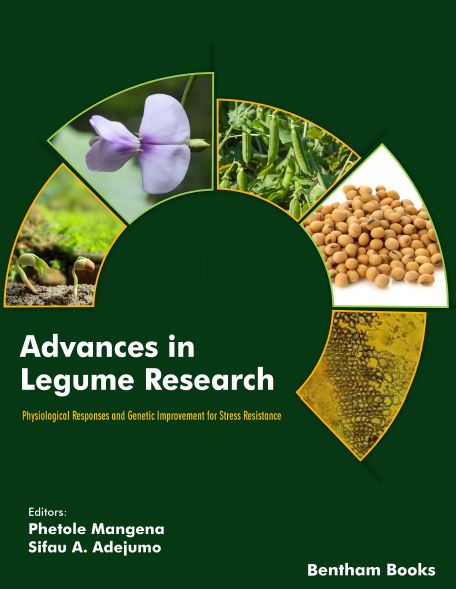Physiological Response of Legumes to Combined Environmental Stress Factors

- By Ifedolapo O. Adebara1
-
View Affiliations Hide Affiliations1 Department of Crop Protection and Environmental Biology, Faculty of Agriculture, University of Ibadan, Ibadan, Nigeria
- Source: Advances in Legume Research: Physiological Responses and Genetic Improvement for Biotic Stress Resistance: Volume 2 , pp 142-160
- Publication Date: November 2023
- Language: English
Legumes are considered the second most important source of food after cereals, and their production can be affected by abiotic and biotic stresses. The incidence of biotic and abiotic stress conditions resulting from climate change is expected to increase in the future and may affect legume production drastically. Abiotic stresses could result in escalated biotic stress occurrence. Although responses to abiotic and biotic stress differ in most cases, combined abiotic and biotic stress responses could be expressed in synergistic or opposing forms. In view of the impending escalation in climate change, responses of legumes to stressful environments are expected to vary among crops. However, collective information on combined biotic and abiotic stress in legumes is not readily available. This paper seeks to gather available information on the responses of legumes to biotic, abiotic, and combined stress with a focus on physiological responses. This review will, therefore, help in providing information and encourage further research into combined stress factors in legumes
-
From This Site
/content/books/9789815165319.chap9dcterms_subject,pub_keyword-contentType:Journal -contentType:Figure -contentType:Table -contentType:SupplementaryData105

